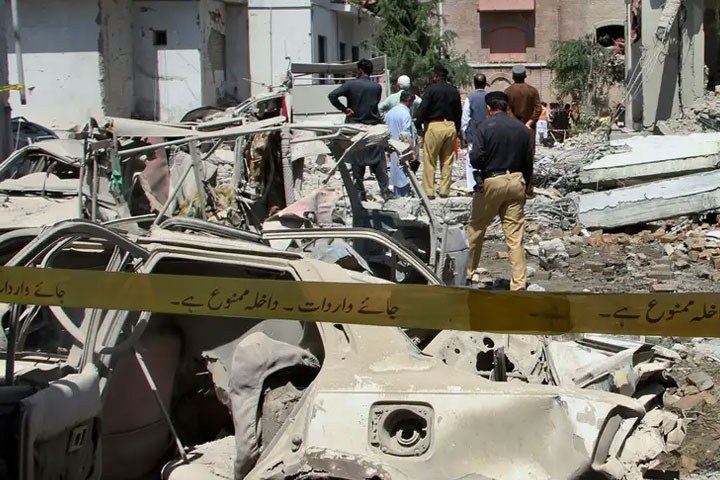Has Hamas reset the Israeli-Arab agenda?
The terrorist attacks by Islamist militant Hamas on Israel have already caused ripple effects that reach far beyond the borders of Israel and Gaza. They have also put many hopes on hold.
It's two weeks since Saudi de facto leader Mohammed bin Salman and Israeli Prime Minister Benjamin Netanyahu confirmed that their countries got "closer every day" and that they were "at the cusp of a deal, which would be a quantum leap for the region." But that seems like a long time ago.
Similarly distant is bin Salman's lack of interest in a Palestinian two-state solution that would give Palestinians an independent country with East Jerusalem as a capital.
In late September, he didn't even mention the two-state solution in a major TV interview with the US channel Fox News. He only said that the new deal with Israel would "give the Palestinian their needs and ensure a good life for them."
Israeli-Saudi ties at stake
Jonathan Panikoff, director of the Scowcroft Middle East Security Initiative at the Atlantic Council, told DW that it was "unlikely to expect that there is going to be progress on Saudi-Israeli normalization in the near future."
In his view, "the politics and trades that would be required are unlikely to allow for it if the Israel operation results in significant deaths and destruction in Gaza."
On Monday afternoon, Israel's Minister of Defense Yoav Gallant gave the order to completely close off Gaza. "There will be no electricity, food or fuel delivered to Gaza," he said in a statement.
Hugh Lovatt, a research fellow at the European Council on Foreign Relations, told DW he believed "Arab public opinion — which remains largely hostile to Israel — will be amplified by the Israeli actions."
Lovatt sees this sentiment as a further obstacle for an "imminent deal between Israel and Saudi Arabia, while putting Arab members of the Abraham Accords such as Morocco and the UAE [United Arab Emirates] under pressure to stake out a more critical stance toward Israel to deflect public pressure."
The United Arab Emirates, which signed a normalization agreement with Israel in 2020, "has offered condolences for Israeli civilians and called for de-escalation, but they stopped short of condemning Hamas outright," Bloomberg financial news service reported on Monday.
Balancing US and Iran
Yet, it is not only Arab pressure that will influence Saudi Arabia's decisions whether to proceed with a normalization agreement with Israel. Two other countries, in particular, will play a big role — Iran and the US.
Despite this year's rapprochement between Saudi Arabia and former rival Iran, both countries remain pitted against each other when it comes to their allies. Iran backs Hamas, which rules Gaza and launched the attacks on Israel.
Saudi Arabia, however, had hoped that normalizing ties with Israel would bring relations with the US back to where they were before the murder of the Saudi critic Jamal Khashoggi in 2018.
The trilateral deal would also grant Saudi Arabia a stronger military alliance with the US as well as a permit to enrich uranium under American supervision.
"Strategic thinkers in Riyadh may have in the back of their mind the real question of how much death and destruction would Saudi Arabia face in a similar conflict, given its defenses are nowhere near that of Israel," Panikoff told DW.
"In the long term, that could drive Saudi Arabia to seek to return to the table to get the US security guarantees that were such an integral part of the reported conversations," he added.
10 Oct 2023,15:00



















 Live Tv
Live Tv









